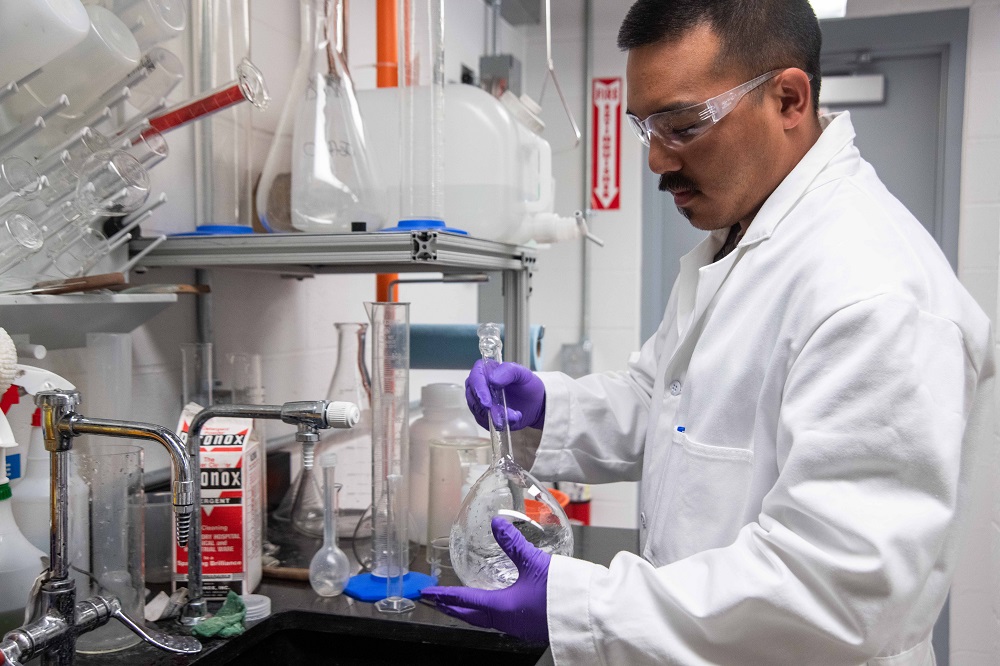This article was updated on November 2, 2021.
The latest update on challenges and trends in the pharmaceutical industry is already available: 2021 Challenges and Trends in Pharmaceutical Industry
The pharmaceutical manufacturing industry is the one that is growing day by day due to the ever-increasing demand in its services. That’s because of the growing number of the elderly, the number of diseases and pandemics. According to WHO, the population aged over 60, will expand by 10% between 2015 and 2025. Besides, experts emphasize the speed of population aging as compared to the past. This evidence means that the pharma industry is going to have extra load as it is expected to produce more medicine for more people in the near future. So, what are the pharmaceutical industry problems in 2020-2021 and how are these industry challenges going to be resolved?
Patient Engagement: Reaching Closer Connections

Nowadays pharmaceutical companies are concerned about establishing closer connections with their customers as never before. Today, a patient-centric approach is considered to be the only right way to do good business and serve citizens. By using it, they can control the way people’s organisms react to their drugs, and therefore, improve production.
By communicating with patients, companies can control and support the whole treatment journey and make significant conclusions that can become ultimate for treatment.
According to the research, a universal patient portal is the best way to engage people. It’s a great means to collect necessary data and make people participate in polls and medical trials. On the patient side, it’s a handy tool to find all necessary reliable information about diseases, treatment, drug instructions, etc.
Among other methods of increasing patient engagement, there are personalized messaging, creating a platform for coordinating personalized treatment and using artificial intelligence principles to predict patients’ treatment-related behavior.
The greatest challenge on the way to apply this means in practice is motivating people to use them as many are not accustomed to utilizing modern devices and technologies. Another obstacle to adopting such a kind of technology for engaging patients is insufficient financing.
Pharma Digitalization: Enhancing Processes by Using Modern Technologies

Digitalization has been embracing almost all spheres of modern life, especially manufacturing fields. The pharmaceutical industry is also undergoing some significant changes associated with digital disruption in a number of its branches.
- First, it concerns paperwork. Digitalization will help not only accelerate many processes but also prevents losing important data and optimizes the workflow.
- Second, artificial intelligence has been successfully applied to regulate production processes and prevent negative consequences of some actions at production, control and predict patient treatment behavior, manage candidates for trials, and optimize patients’ treatment journeys if necessary.
- Cloud computing increases management efficiency and keeps all important information safe. According to Salesforce, 94% of organizations ephasized on the increase of security thanks to cloud technology. There’s a lot of confidential data in the pharmaceutical field: starting from the development of drugs and ending with storing patients’ case-records and trial results. Besides, it makes all processes more efficient, including patient engagement. When everything is kept in the cloud, medical workers can for example get real-time information about changes in patient reactions to drugs and take corresponding measures.
- The Internet of things opens up great opportunities for the pharma industry making it less vulnerable to mistakes and losses. Thanks to the unified system of data storage and operations, the production and transportation of drugs become much easier and safer. Manufacturers can get real-time information about the conditions, threats, or other things to improve the conditions and avoid failures.
On the whole, digitalization with the implementation of advanced technology has the following advantages:
- Prevention of data losses
- Cybersecurity
- Control of quality and operations
- Flexibility and adaptability
- Reduction of costs (for example, in the case of cloud technology vs local storages)
- Increase in management effectiveness
Impact of COVID-19 on Pharma Manufacturing

There’s hardly any industry that hasn’t been affected by COVID-19. The pharmaceutical manufacturing sector is of no exception, having been experiencing both difficulties and threats as well as challenges on its way. Many current issues in pharmacy 2021 are still associated with the pandemic. So, how is the industry addressing them?
Supply Chain Difficulties
As China is the biggest concern of the American pharma industry making up 13% of the whole production field, the US has been suffering because of great losses due to the border closure since the pandemic measures have been taken. The same relates to India, which makes up 18% of American imported drugs. Besides, these two countries are in charge of supplying the US with generic drugs.
Restrictions for importing and exporting raw materials and containers for medicine hinders the development of pharma manufacturing and of course disturbs the business of pharmaceutical companies that have been bearing losses.
Moreover, it also refers to the production of medical equipment in China. Their plants are either shut down or work far from their full capacity, and they simply can’t deliver their products to their customers worldwide because of the pandemic.
These crisis issues are expected to bring a great increase in prices for drugs and medical devices in the nearest future.
New Opportunities for Small Pharma Companies
At the same time, due to supply chain problems caused by world restrictions, small businesses can use this situation to improve their state of things. Large pharma companies may deploy smaller firms to deliver orders for them. In such a case, both win and gain extra benefit: large companies reduce costs and don’t stop their production while small ones get their extra outcome.
Postponements in New Medicine Development
Regarding the fact that most conferences were canceled, delayed, or in the ideal case switched to online, the discussion of many significant medical topics has become complicated or impossible. This, in turn, affects the development of the whole field.
At the same time, due to the world’s concern about the remedy for coronavirus, the elaborations and trials of new drugs for treating other diseases have moved into the background.
Addressing the Arising COVID-19 Challenges
Manufacturers producing various kinds of goods have reorganized their fabrication for the period of the pandemic to help overcome the crisis. For instance, they have been producing sanitizers, plastic face shields for workers, and other things.
Read more: 2020 Trends and Challenges in Manufacturing
Besides, according to FTI Consulting, Donald Trump even referred to manufacturers with an order to produce more stuff that would be handy in the period of the pandemic: masks, respirators, and drugs. Such famous enterprises as Apple, Dior, Ford, Givenchy, Tesla, and others are engaged in these initiatives and have been working on the production of things of national security.
Predictions for the State of Pharma After Pandemic Outbreak

Today the biggest focus of pharmaceutical companies is placed on the elaboration of a vaccine, which is the greatest challenge that will definitely affect the whole industry. Experts believe that the pandemic is going to test its economic model because the results of drug development and trials will have an impact on pricing. There’s an assumption that more economically developed countries will compete for getting the vaccine first, which may block access to it for poorer states. As a result, regulatory institutions may decide to decrease patent protection and cut the prices to make the vaccine affordable for everyone. This, in turn, will negatively affect the pharmaceutical industry in general by weakening its economic model.
One of the ways to avoid this situation for pharma companies is to regulate pricing and unite their forces to develop and test the vaccine in the form of partnership.
Another problem that pharma companies are facing now is great losses due to the coronavirus vaccine R&D. According to MIT Sloan, bench to bedside cost for any medication is more than $1 billion. And nobody can guarantee that this money will be refunded. Therefore, today the pharma industry is at the stage of a ‘war’, and there could be only one winner. And this is another reason for uniting efforts with a common goal – developing a treatment medication.
As China was the first country that experienced the pandemic outbreak, they’re a little bit ahead of taking measures and developing a recovery plan. According to Deloitte report, Chinese companies are going to mitigate the negative impact of COVID-19 by applying the following measures:
- Make closer connections with hospitals and local governments
- Enhance supply chain management
- Contribute to online business
- Accelerate digitalization
Experts predict that the coronavirus pandemic will bring some new trends to the world in general, and in the pharmaceutical industry in particular:
- Telemedicine
- AI-based medication development
- IoT and big data to prevent pandemics in the future
Apart from addressing the above mentioned and other challenges and reaching all planned goals, the pharmaceutical industry is burdened with the pandemic crisis, which will continue dictating its rules for the industry for at least the nearest future. Only after the successful elaboration of the vaccine and its efficient implementation, experts can get back to their daily professional duties.

